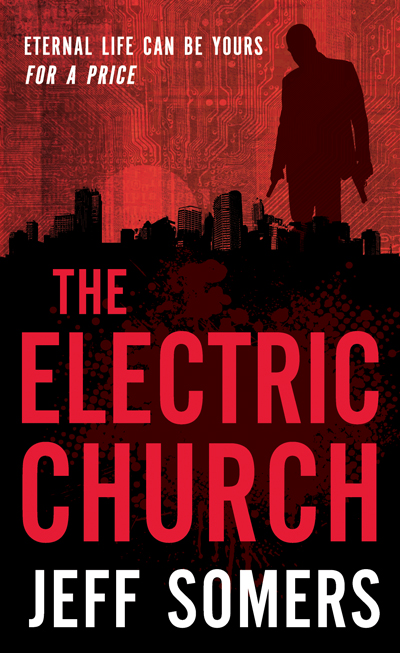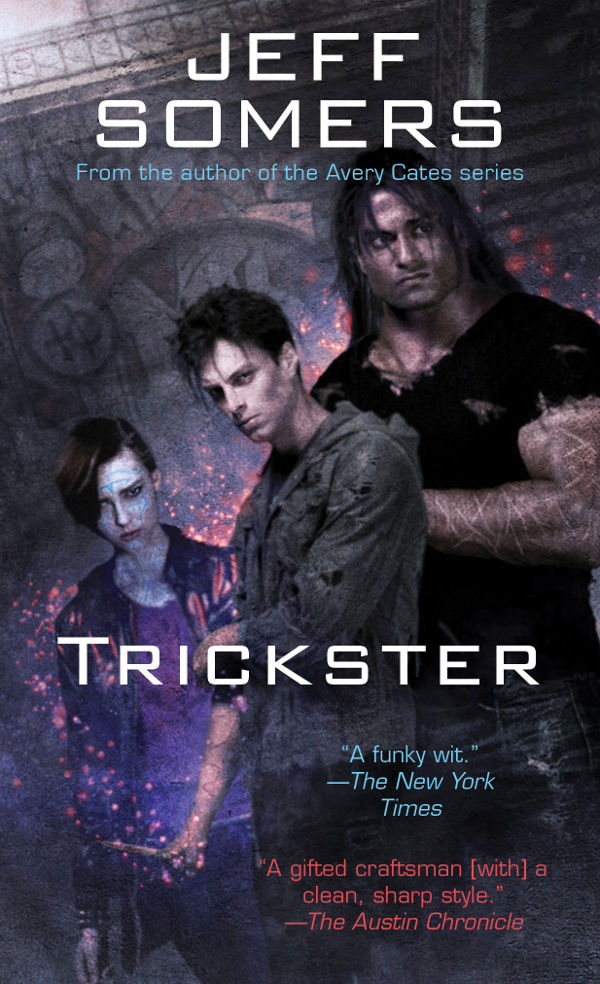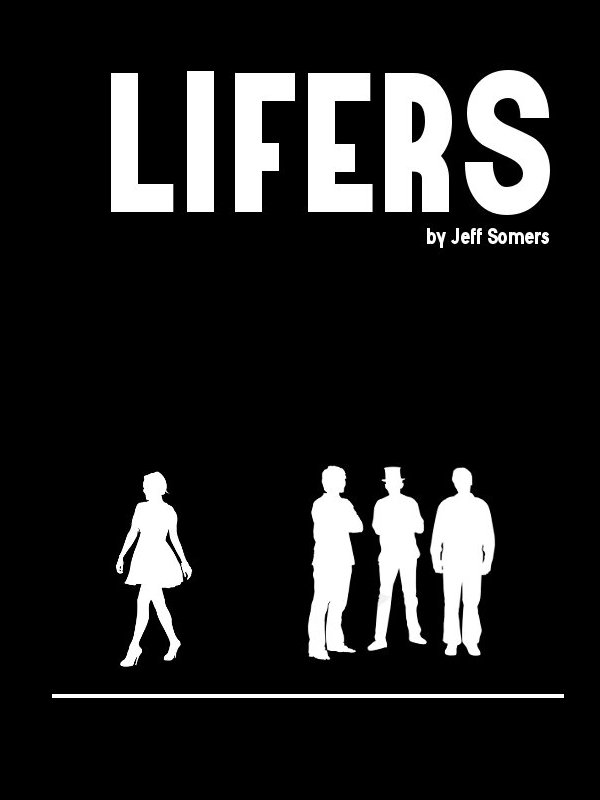Here’s an excerpt from an unpublished novel. Just a piece of writing I like, presented without context.
XII. Monday
I knew Lindsay the Doctor from High School. I knew this, although I didn’t remember much from High School. My childhood at all, really. My past faded. A few years down the line, it was like stuff never happened. People would show me photos – Tommy in a cowboy costume, Tommy screaming at some concert, Tommy playing guitar with a cigarette in the corner of his mouth at some frat party – and there was nothing. No glimmer of recognition. Like it was a different me doing all that, all those years ago.
I was a perfect organism. Unencumbered by past failures or triumphs.
It was all still there, though. If I concentrated, if I had a reason, I could pull it all back out of the dark moldy folds of my brain, the complex chains of acids and chemicals that formed memories. I rarely tried very hard. There was nothing for me there.
Lindsay, I remembered. She was useful to remember. She was pretty but not beautiful. The kind of girl you chatted up energetically at a bar and then spent the morning wishing fervently would leave. Super smart. Fucking Bond Villain smart. In High School, she’d been insecure and desperate, got high a lot, always had drugs, put out like a French Quarter prostitute and spent a lot of her time crying. Naturally, I stayed in touch.
In college, she’d done well. Professionally. Pre-med, good grades piled up. She was fucking brilliant. Could read a book in an hour, remember everything. Said she hated her brain, because she couldn’t forget. Anything. It all stayed there. Every insult, every back-seat date rape, every humiliation and menstrual cramp, burned in. If we bred, our children would be Supermen.
She was already making money selling. Pills, mainly. Pills were plenty. She also sold gear. Syringes, ampules, whatever. She got contacts to write scrips for a premium. Her dorm room was fucking party central, something out of a movie. People everywhere, getting stoned, Lindsay always stoned, but always somehow showing up for finals and getting fucking perfect grades. And when she went on to med school and I went on to a lowly perch in corporate America’s gut, I kept in touch. I remembered her. I forced myself to, because she was too good a resource.
And she appreciated being remembered. Most of her old friends had moved on. Most of her customers forgot her the second she shut the door behind them. I always reminded her how cool she’d been in high school. A rebel. A smart, pretty girl who liked to party. I told her high school story like a fucking teen comedy film, leaving out the crying jags except when I’d been there to manfully put an arm around her – a bonding moment for the main characters – and the occasional six-month depression. I shaped her adolescence into a fucking magical time of freedom and triumph, so she liked having me around.
She told me people wore her out on Oxycontin. Wore her out. That’s all they wanted. She was fucked up to gills all the time herself. Handfuls of pills, a bottle of vodka in her locker, in her glove box, in her backpack. She was thin and yellowed and her hair got brittle, she looked like fucking death but she pulled through her residency with flying colors. Told me she maybe killed two, three people by accident, but seemed kind of surprised by that stat. Like she knew it should have been more. Told me doctors killed more people than you would imagine but covered for each other. Invented symptoms, scotched up test results. She said most doctors were shit, they fucked up all the time but covered it all up so they could continue killing us.
She also told me doctors earned shit. Until they were out of residency, at least, and then only if they were specialists. And then only if they were fucking incredible. Most doctors made decent livings, but weren’t rich.
I didn’t do drugs often. I liked drugs fine, but the quality control issue bothered me. You buy something from some asshole, who the fuck knew what you were getting. Booze was safe. Regulated. Your chances of drinking a bellyful of antifreeze instead of bourbon were essentially zero. Your chances of blowing a rail made up sixty-five percent rat poison were essentially one hundred. But pharmaceuticals, from a fucking pharmacy, passed on a scrip? Fuck all. Why not.
Time had not been kind to Lindsay. At her messy, tight apartment downtown, she paced and chewed her nails. Her apartment had a layer of her dust on top of the dust that had been there when she’d moved in. A sublet. A sweet sublet, rent-controlled. She was paying practically nothing for a one-bedroom. And treating it like her dorm room. Shit everywhere. Hadn’t been cleaned, period. Like, since it had been built, first not cleaned by the Italian or Irish immigrants who packed into it, desperate and unwanted. Then not cleaned by generations of increasingly upscale slummers who could have afforded some shitbox studio in midtown but chose to beat the system and pay pennies on the dollar for a place with atmosphere. The place smelled, felt tight and hot, like we were buried under ash.
Her apartment made my skin crawl. I sat there with a theatrical smile on my face.
Lindsay had a small path to pace in. Eight feet, spin, eight feet. A canyon formed by piles of boxes and books, clothes and plump, swelling garbage bags I suspected should have been taken to the curb months ago. She smoked and chewed and spat little pieces of herself on the floor, telling me about it. Pills to wake up in the morning, pills to stay sharp during the day, pills to go to sleep at night. Dark bags under her eyes. Lindsay fucking up almost too much for even her fellow doctors to cover up. Dozens of people, now, she said. Dozens dead.
She kept telling me this as she paced, smoking a cigarette, hands shaking. Dozens. She’d killed dozens now. Nodding off during procedures, getting all blurry reading tests, writing out preposterous prescriptions that were filled without question, making hearts explode and livers fail.
Sure, sure, I kept saying. Soothing. I felt like I was back in school, trying to fuck a Sad Girl. You had to coax the Sad Girls. You had to listen and listen and listen and rub their back and tell them they were special and beautiful and of course you understood and then you had to listen and listen and listen again, and rub their fucking back and murmur kind words of support. And again and again, endlessly, your appetite for it directly proportional to how hot she was, how big her boobs were, how long her legs were. You did it long enough, you put in the time, the Sad Girls lay down and spread their legs and you got in. And then you made them more sad, but that was the next asshole’s problem.
Lindsay was like that. Pacing, making me dizzy. Smoking and talking. And talking. She was being watched. She was going to lose her license. She was being sued by so many people now, and she was going to lose her malpractice insurance. She was fucked. All I wanted to do was buy some pills from her, heavy duty stuff that you could calm a gorilla with. But I had to sit there and rub her back and say sure, sure and tell her she was beautiful so she would lay back and put her ankles in the air and sell me some fucking pills.
She had a plan. She was selling everything. Everything Must Go. Caution to the wind, she was moving more fucking drugs out the door than she’d ever dared. She was going to sell everything she could, fucking bankrupt the hospital, screw all of her doctor friends, and put together a tidy amount of money. Move to Mexico. She knew an American doctor with a license in any state could buy a license in Mexico for a few grand. She’d set out her shingle in some shithole town and make burrito money stitching up cuts and diagnosing asthma, and live off her wad.
Except, except, except, as she paced back and forth back and forth, smoking and picking at a scab on her arm, except she wasn’t piling the money up. She didn’t understand it. She was selling so much shit, like really setting records with it. Call the Guinness people, doctor who sold more prescription drugs than ever before in history, it was her. But she didn’t have a ton of cash. It just melted away.
I rubbed her back. I told her, sure, sure. It was a fucking mystery. Unsolvable, unless you put a face on the Cosmos and made it all angry and mean. The universe, fucking with her, stealing her money. I watched her scratching at herself. A real mystery.
Suddenly, she spun and asked me if I wanted a drink? Some music? Suddenly we’re on a date. She smiles at me. Tomwallace, she says. She did that, said my full name as one word. It was a thing. Tomwallace, she says, thanks for sticking with me.
I shit my pants. She’s going to cry. Jesus fucking Christ, all I want is a bottle of horse tranquilizers, and now I’m starting to worry I’m going to have to fuck her to get them. She’s giving me that dewy look. Like she actually believes we are some epic love story. She’s the Ungettable Girl, super smart and pretty and successful, and I’m the nerd character, the puppy dog loser who’s always there for her but never noticed. Until that one fateful night when something epic and tragic happens, and the Ungettable Girl looks over at me, the pop music swells, and I get her.
Holy fuck.
Failure was not an option, however. I rubbed her back. I told her, sure, sure. I was prepared to dive in. To peel back those sweaty panties and wear three rubbers and do whatever it took. I said I’d love a drink. I said I’d love some music. I retold an old chestnut about us in high school, showing up for a dance humming to the gills on brandy and mystery pills she’d doled out, everything slippery and hilarious. How she’d caused a sensation by dancing with abandon with a series of boys. I left out the part with her ending up in some jerkoff’s Mustang, getting felt up until she puked suddenly, an explosion of puke with no warning signs sprayed all over the jerkoff and his upholstery. I edited it. I cut the end and faded out on her dancing, dancing, dancing, everyone clapping and excited.
She raced around the place as I talked. Handed me a dirty glass of sour red wine and raced around. Put the radio on, the old-fashioned over-the-air radio. Swing music. Jazz. Sophisticated. Raced around, disappeared into the bathroom. Terror seized me. I pictured her doing a hobo bath in there, wiping herself down, spritzing on deoderant over the old deoderant, taking the five birth-control pills she’d forgotten this week all at once. Sweat popped out on my face. I told myself I could do this. Wallace men had fucked some pretty horrifying things in their desperate quest to pass on their genes; one mildly skanked out junkie doctor was nothing to write home about. My ancestors would laugh at me and mock my fancy ways.
I stood up, setting the glass of not-precisely-wine-anymore on the filthy, cluttered coffee table, and started moving towards the bathroom. If this was going to happen, I was going to take control and do it in the best possible way for me. As I walked, I tried to ignore the persistent smell of body odor, the thick feel of the air. I didn’t think about what was crackling under my shoes like dessicated beetles. I was going to go in. I was going to rub her back. I was going to say, sure, sure.
I knocked. No answer. I pushed the door in and stood there for a moment. Lindsay was sprawled on the floor. Passed out. I saw her chest rising and falling. For a second my ancestors crowded around me, urging me to fuck her anyway, a deal was a deal was a deal.
I looked around the bathroom. It was, of course, a level of disgusting I’d never encountered before. I was going to have to check into a hotel, burn my clothes, take a shower that was about one degree less than lethal, and possibly shave my head, before I could go back to my own apartment. The only thing that could be said in Lindsay’s favor was that she appeared to still be using the toilet for its assigned purpose instead of just shitting on the floor.
I decided to leave the bathroom search for last, and thank god, because she hadn’t even hidden anything. It was just piled up on her gritty bed. Pills in thick clear plastic bags, piles of them. Syringes, rubber tubes, small glass bottles – everything the ambitious drug user could want. I took a single bag and examined it, noting the cute little OC stamped on one side of the little pills. I stuffed it into my pocket and sifted through the syringes, all packed in neat little sealed plastic baggies. I’d no idea how many fucking types of syringes there were. I sorted through them until I found a nice long one, thin like a bit of wire. It looked sturdy enough to be pressed down through a cork.
I paused and looked around her bedroom. Dirty clothes everywhere, junk food containers, dust. On her dresser she’d arranged an implausible number of framed photos. Of herself. Other people, but always her. Always her from years ago – smiling, young, with healthier hair and fewer bruises. I saw myself in one, a smaller one, faded and blurry. Me, skinny.
I walked over and picked it up. I had no photos. I didn’t keep them. People sometimes sent me pictures; I threw them away or deleted them. I stared down at it. It was my lines, my shape. But it wasn’t me any more. I put it back where it had been, right exactly into the clean spot on her dresser, turned and went back into the dark, stuffy living room. I paused and listened. I looked around, thinking whether I’d left anything, sloughed anything off I was going to regret later. There was nothing.
I stepped out into the hallway. Music, somewhere, sopoforic and muffled. Ten thousand dinners stretching back to the 19th century crowded into my nose. I shut her door behind me and thought about calling an ambulance. Then, didn’t.
 As with most authors, all of being selfish self-obsessed bastards, I am always delighted when someone reviews my books favorably. Especially when they review books that originally came out 5 years ago, like The Electric Church:
As with most authors, all of being selfish self-obsessed bastards, I am always delighted when someone reviews my books favorably. Especially when they review books that originally came out 5 years ago, like The Electric Church:

